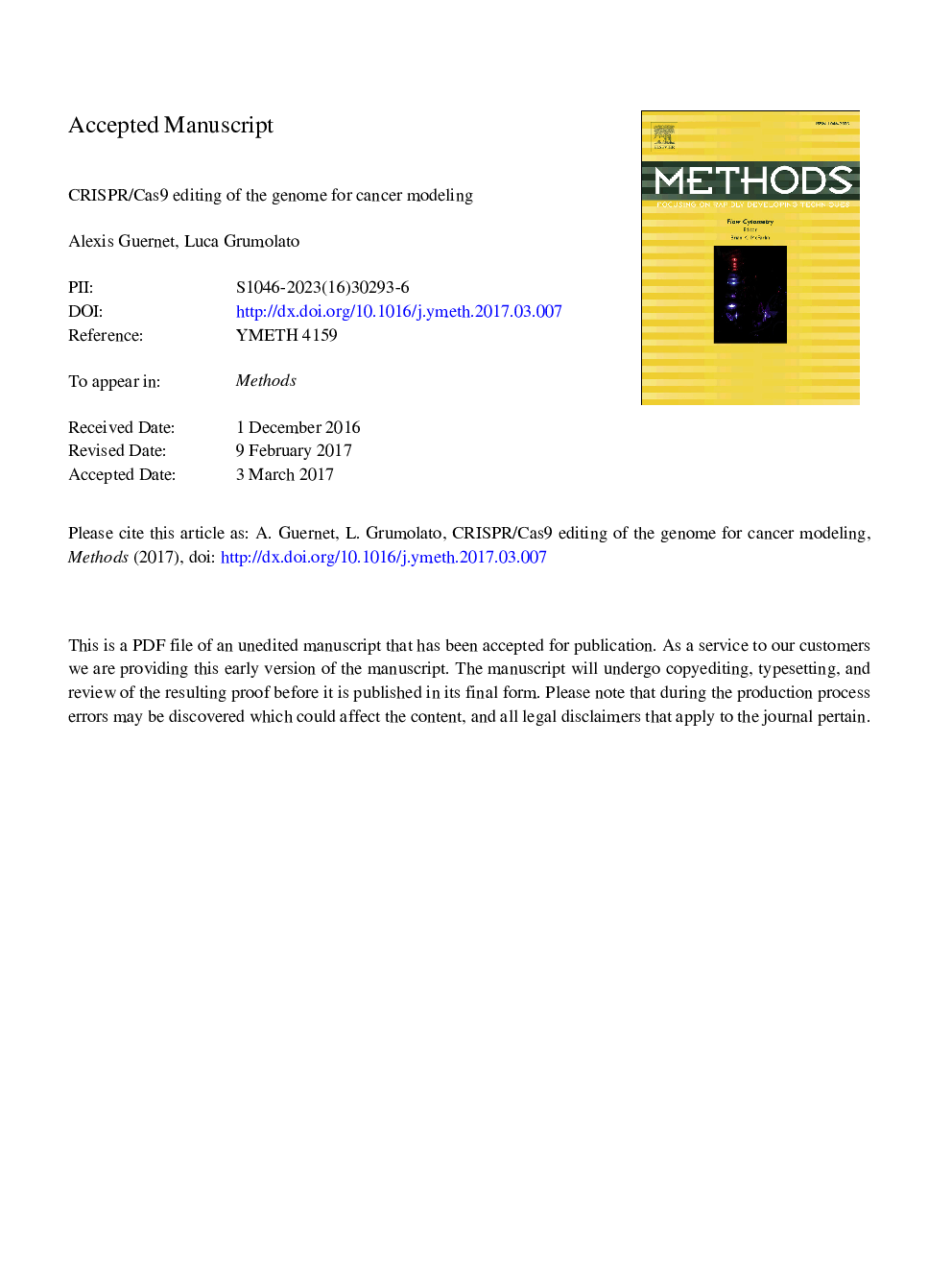| Article ID | Journal | Published Year | Pages | File Type |
|---|---|---|---|---|
| 5513605 | Methods | 2017 | 24 Pages |
Abstract
The CRISPR/Cas9 revolution has democratized access to genome editing in many biological fields, including cancer research. Cancer results from the multistep accumulation of mutations that confer to the transformed cells certain biological hallmarks typical of the malignant phenotype. One of the major goals in cancer research is to characterize such mutations and assess their implication in the oncogenic process. Through CRISPR/Cas9 technology, genetic aberrations identified in a patient's tumor can now be easily recreated in experimental models, which can then be used for basic research or for more translational applications. Here we review the different CRISPR/Cas9 strategies that have been implemented to recapitulate oncogenic mutations in both in vitro and in vivo systems, including novel strategies to model tumor evolution and genetic heterogeneity.
Related Topics
Life Sciences
Biochemistry, Genetics and Molecular Biology
Biochemistry
Authors
Alexis Guernet, Luca Grumolato,
